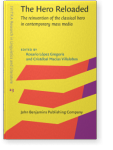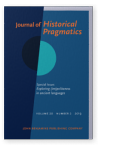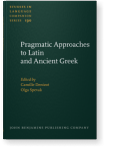Luis Unceta Gómez
List of John Benjamins publications for which Luis Unceta Gómez plays a role.
2023 Facetus and the birth of “European” politeness Politeness in and across Historical Europe, Paternoster, Annick, Gudrun Held and Dániel Z. Kádár (eds.), pp. 32–48 | Article
This paper aims to contribute to the study of the first stages of the development of European politeness, through the analysis of the metalanguage of politeness used in two Latin poems with the title Facetus (Facetus: cum nihil utilius and Facetus: moribus et vita), both dating from the twelfth… read more
2020 From Hero to Superhero: The Update of an Archetype The Hero Reloaded: The reinvention of the classical hero in contemporary mass media, López Gregoris, Rosario and Cristóbal Macías Villalobos (eds.), pp. 1–18 | Chapter
This paper offers an analysis of the interpretative keys of the character of the superhero in comic books, in comparison with those of the hero of Classical Antiquity. It is not only that both characters come to play similar functions in their respective fictional universes, but there is also a… read more
2019 Conceptualizations of linguistic politeness in Latin: The emic perspective Exploring (im)politeness in ancient languages, Ridealgh, Kim (ed.), pp. 286–312 | Article
This paper presents an analysis of conceptions of linguistic politeness in ancient Rome. Using lexical analysis, it scrutinizes first-order data recoverable from the Latin sources at our disposal, in order to determine the notions and dimensions of politeness that Romans were sensitive to. This… read more
2017 Chapter 4. Discursive and pragmatic functions of Latin em: Grammaticalization, pragmaticalization… interjectionalization? Pragmatic Approaches to Latin and Ancient Greek, Denizot, Camille and Olga Spevak (eds.), pp. 63–82 | Chapter
The Latin particle em, mainly attested in Archaic Latin, is the apocopated form of eme, the imperative of the verb emere ‘to take, acquire, purchase’. The traditional understanding of this element has been that of a secondary interjection. This interpretation, however, presents a number of problems… read more



